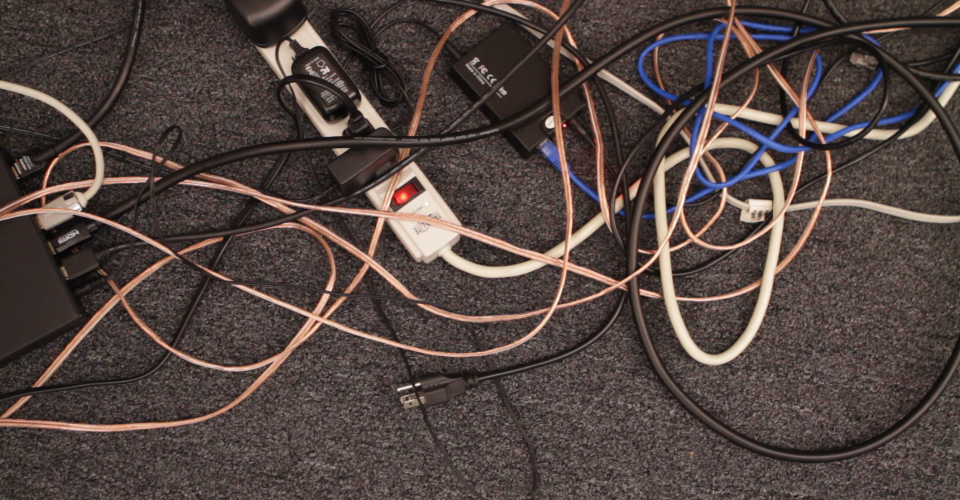My wishlist
24 Nov 2015Technology is moving so fast but things are still broken. I have a few things on top of my wishlist and hope they could be addressed in the near future.
1. No wires
I believe I don’t need to explain too much on this. It’s so obvious:

“No wires” should work on both data and power side, meaning that data ports like USB, HDMI, MIDI, headphone jack should all gone; on power supply side, power should become remotely available like WiFi.
Getting rid of data cables can enable more devices, or IoT, talk to each other seamlessly at anytime they want; and getting rid of power cables will fundamentally impact how people consume electric, think about: 1. You never lose power on any device any more; everything is ready to use at anytime; 2. Potentially all power outlets can go away. It’s safer and you have more flexibility to move things around (don’t have to always against the wall); 3. Devices can be lighter in weight and smaller in size because they don’t have to save space for cables; 4. Potentially manage of all devices in one place remotely;
Some companies are already on this, such as Supply and uBeam, etc. Super excited to see what happens next.
2. Free digital books
Currently online resources, like blog posts, are scattered, and the quality is generally not as high as books. If I want to learn some area from ground up or in a structured way, books are still something I’d stick with. However books are expensive, especially the popular ones, that sometimes I’d have to re-think about the price before I buy them. Most of the time I only buy books that I super interested in or will be super helpful to me, but for other books that don’t meet the bar, I just walk away. I’d have 10x more books if there were no price concerns.
Yes I know making digital books free is hard, but it absolutely makes none sense to charge money for something that cost $0 to reproduce. There ought to be some way to offer free digital books to people, and help authors to make money at the same time.
3. Cheaper education
I am emphasizing “cheaper” here but I hope the new solution could be “better” as well.
While kids living in well developed areas can afford tuition to get in schools, there are a huge number of kids in under development places don’t have money and faculty resources for quality education. Most of them don’t have smart devices, internet, or even reliable electric supply.

Charity is good and helpful, but it is not a sustainable solution to solve the problem. I am always wondering how technology can bring us a new way to share or rearrange education resources around the world, and make them affordable and accessible even for the rural kids. I.e. no cost to access learning resources; less faculties required to run a school; higher quality education offered in classroom, etc.
4. Instant health screening
People don’t know their current health conditions, until they have a health screening. Many of them got hyperglycemia, tumors, or even cancers but missed the best treatment time because they didn’t know what happened to their body. It will save many people’s life if they run health check more frequently.
Theranos is making progress in getting health check fast and effortless, and they are doing a great job. But people still have to go to pharmacy stores like CVS or Walgreens to do it, which is not 100% ideal.
I hope health screen can be as easy as scan a finger print. It will be awesome if everytime you unlock your phone by pushing the finger print scanner button, it also checks for your health conditions and let you know the most up-to-date health insights. It will prompt you if your body is experiencing an excess of glucose, or suggest the best dairy base on your condition.
Closing
I think all of the above broken scenarios will be addressed in future, it’s just the matter of time. There are tons of other things needed to be fixed that I can’t cover and I don’t know right now, but they are all truly valuable to the world. However, nothing here is trivial, so let me close this with a quote from Paul Graham’s essay:
If you want to take on a problem as big as the ones I’ve discussed, don’t make a direct frontal attack on it…
Empirically, the way to do really big things seems to be to start with deceptively small things…
I think the way to use these big ideas is not to try to identify a precise point in the future and then ask yourself how to get from here to there, like the popular image of a visionary. You’ll be better off if you operate like Columbus and just head in a general westerly direction.